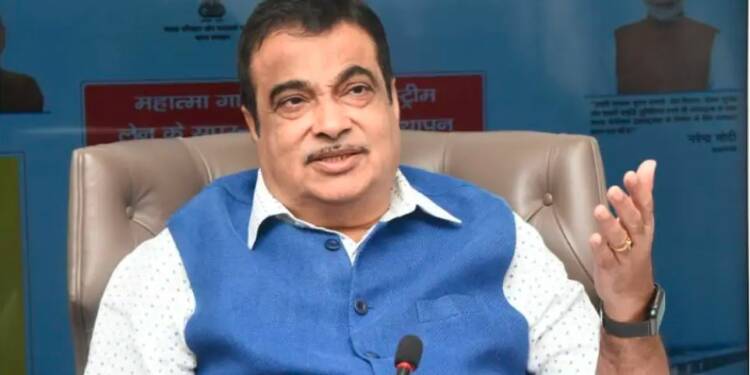In the last few years, especially in the second term of the Modi government, there has been a heavy push towards electric vehicles. NITI Aayog has been arguing for the push towards electric vehicles since 2017. Prime Minister Narendra Modi is pushing for electric vehicles to become the new standard in India. Last month, the Modi government approved a ₹26,058 crore PLI scheme (Production-Linked Incentive) which promotes advanced technologies, most important among which is electric battery technology to be used for the propulsion of India’s electric vehicle space.
The scheme focuses specifically on EVs and Hydrogen fuel cell vehicles and their components. According to the government, it expects the PLI scheme to bring in investments of ₹42,500 crores. Now, Union minister Nitin Gadkari has announced that the government is aiming for 30 per cent electric vehicle sales penetration for private cars, about 70 per cent for commercial vehicles, and 80 per cent for two and three-wheelers by 2030.
According to PTI, Gadkari also said that if the adoption of EVs increases by 40 per cent in two-wheelers and cars and close to 100 per cent for buses by 2030, it will help India reduce its consumption of crude oil by 156 million tonnes worth ₹3.5 lakh crores. At the India Today Conclave, Gadkari said that the crude oil current import bill of India is ₹8 lakh crore, which is likely to increase to ₹25 lakh crore in the next five years. Therefore, keeping in mind the rising vehicle penetration in India, the Modi government wants to ensure that electric vehicles make it big in the Indian market and that Indians choose environment-friendly vehicles instead of conventional ones.
Gadkari’s Message to Tesla
Elon Musk’s attempt to strike a fine balance between his commercial interests in both India and China has received a severe blow from Nitin Gadkari. India’s Minister for Road Transport & Highways has drawn a clear distinctive line between doing business in India and catering to China’s interests. Nitin Gadkari asked Elon Musk to start producing electric vehicles in India, instead of selling China-manufactured cars in the Indian market. Assuring Tesla of all necessary support, the minister also asked Musk to export Made-in-India Tesla cars.
Addressing the Indian Today Conclave 2021, Gadkari said, “I have told Tesla that don’t sell electric cars in India which your company has manufactured in China. You should manufacture electric cars in India, and also export cars from India,” He further added, “Whatever support you (Tesla) want, will be provided by our government.”
India’s Massive EV Push
As the world moves away from fossil fuels, it is becoming exceedingly clear that the future of the world is with Electric Vehicles (EV). The EV market is powered entirely by lithium-ion batteries (LiBs). Presently, China manufactures two-thirds of the world’s lithium-ion batteries, and it is also the biggest producer of Graphite – a key raw material for manufacturing LiB anodes. China also has high concentrations of Lithium, but it prefers importing 80 per cent of the white metal so that it can store up its own reserves for future needs.
Within India, there has been a determined attempt to reduce dependence on China when it comes to Lithium-ion batteries. As early as 2018, Anant Geete, then Union Minister of Heavy Industries and Public Enterprises had announced that India would soon become a manufacturer of Lithium-ion batteries. India plans to make up for paucity for lithium – the most important component in LiB manufacture by tapping into South America’s ‘Lithium Triangle’ that consists of Chile, Bolivia, and Argentina. The world’s largest lithium reserves are found here, led by Chile.
Read more: Government’s big push to promote Electric Vehicles in India
So, India is visibly taking drastic steps to up its game when it comes to the electric vehicle sector. When the EV revolution does happen, India wants to be prepared. Furthermore, by tabooing conventional vehicles which use diesel and petrol, India is making it clear that in the near future, electric vehicles must become the new normal.
Meanwhile, India is not going to be reliant on fossil fuels for its energy requirements to drive the EV surge. As the de facto leader of the International Solar Alliance (ISA), India has established itself as a nation that is very keen to tap into the power of the sun.
ISA will help India to lead the future of energy as well as augment its bargaining power against organisations like OPEC. The price of solar energy has gone down in the last few years with growth and investment. With India beginning to successfully leap towards clean energy, a huge amount of foreign exchange spent on oil bills could be saved in the coming decades. Therefore, India’s future in clean energy will depend on ISA’s success to a large extent.
Nitin Gadkari has laid down some optimistic goals for India, which he aims to fulfil by 2030. Given the trajectory with which the Modi government is working on the EV front, the goal looks very much achievable.
